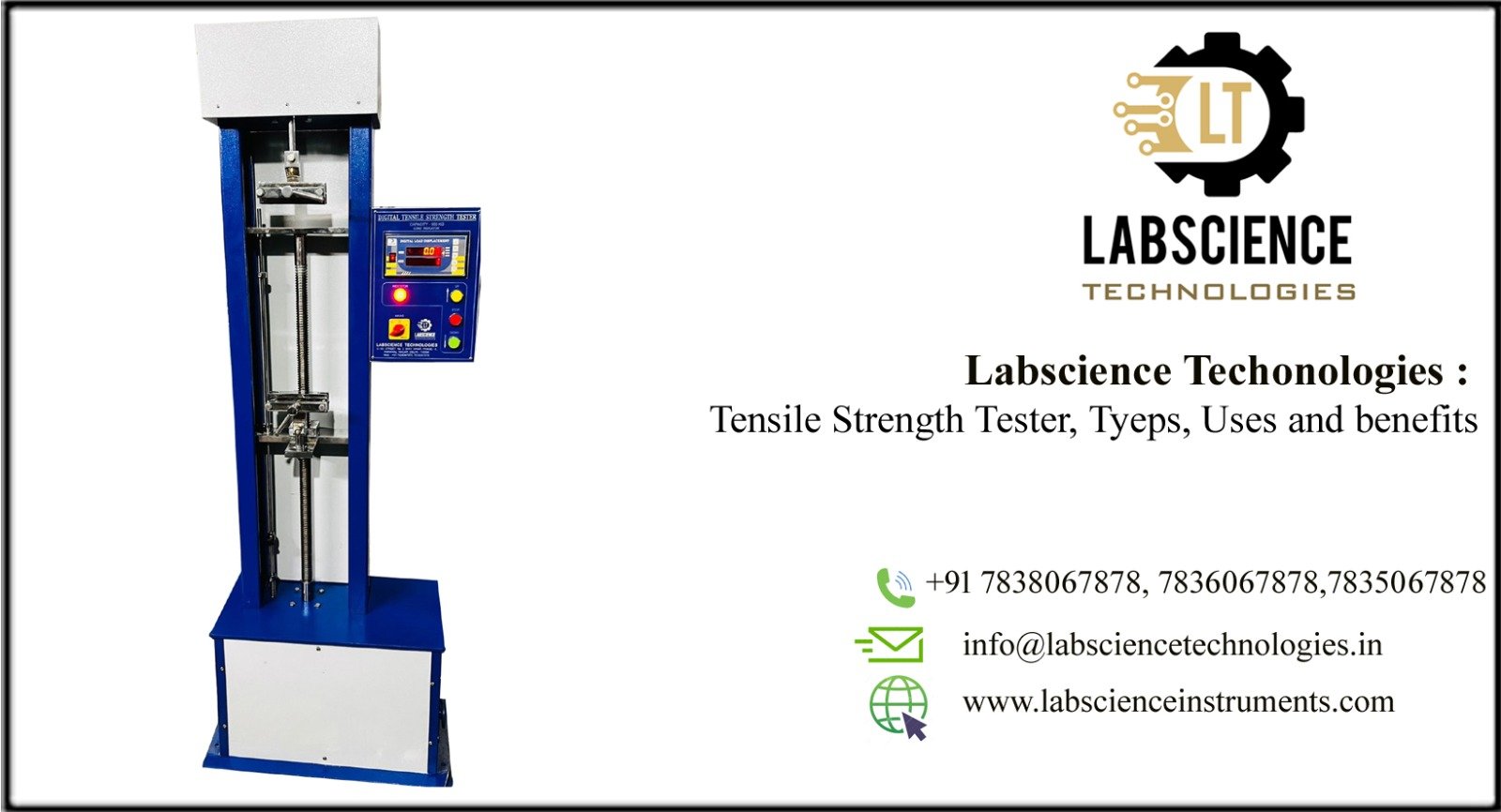Applications of Digital Tensile Strength Testers in Manufacturing
Applications of Digital Tensile Strength Testers in Manufacturing
Introduction to Digital Tensile Strength Testers
Digital tensile strength testers are vital tools in the manufacturing industry, offering precision and reliability for testing the mechanical strength of materials. These advanced devices help evaluate a material’s tensile strength, ensuring it meets industry standards and quality requirements. This article explores the diverse applications of digital tensile strength testers in manufacturing and their significance across various sectors.
What is a Digital Tensile Strength Tester?
Definition and Working Principle
A digital tensile strength tester measures the resistance of a material to breaking under tension. The machine applies controlled tensile force to a sample and records its response. The digital interface allows precise data collection and analysis.
Key Features
High accuracy and repeatability.
Digital display for real-time results.
Compatibility with various materials like metals, plastics, and textiles.
Customizable testing parameters for different industries.
Automated data logging and reporting.
Applications of Digital Tensile Strength Testers in Manufacturing
Automotive Industry
Testing Metal Components
In the automotive sector, tensile strength testers ensure that metal components such as bolts, frames, and panels can withstand the stresses encountered during vehicle operation. This guarantees both safety and durability.
Evaluating Composites
Composites used in car bodies and interiors are tested for strength and elasticity, ensuring lightweight yet robust designs.
Packaging Industry
Testing Film and Plastic
Digital tensile strength testers measure the stretchability and breaking point of packaging films. This is crucial for creating durable packaging solutions for consumer goods.
Seal Integrity Testing
Packaging seals are tested for their tensile strength to ensure that products remain protected during transportation and storage.
Construction Industry
Evaluating Steel and Concrete
Tensile testers measure the strength of steel rods and concrete materials used in construction, ensuring they meet structural safety standards.
Testing Adhesives and Sealants
Adhesives used in construction are tested for their bond strength, ensuring they can endure environmental stresses.
Textile Industry
Yarn and Fabric Testing
In textile manufacturing, tensile testers measure the strength and elongation of yarns and fabrics. This ensures that the materials can withstand wear and tear during use.
Application in Technical Textiles
Specialized textiles used in industrial and medical applications are tested for their tensile properties to meet strict performance criteria.
Aerospace Industry Testing Aircraft Materials
Aircraft components, including metals, composites, and fasteners, undergo tensile testing to ensure they can withstand extreme pressures and environmental conditions.
Advanced Material Testing
Innovative materials like carbon fibers and alloys used in aerospace are tested for tensile strength to optimize their performance and safety.
Plastics and Polymer Industry
Material Development
Tensile testers evaluate new plastic formulations for strength and flexibility, aiding in the development of better-performing materials.
Product Quality Control
Finished plastic products such as pipes, containers, and fittings are tested to ensure they meet required strength standards.
Benefits of Using Digital Tensile Strength Testers
Enhanced Quality Assurance
Digital tensile testers help manufacturers ensure that their products meet stringent quality standards, reducing the risk of defects.
Cost Efficiency
By identifying weak materials early in the production process, manufacturers can reduce wastage and avoid costly recalls.
Data-Driven Insights
These testers provide detailed data that can be used to optimize material selection and improve manufacturing processes.
Choosing the Right Digital Tensile Strength Tester
Factors to Consider
Material compatibility.
Force measurement range.
Ease of operation and software integration.
Durability and build quality.
Importance of Calibration
Regular calibration ensures the accuracy and reliability of test results, maintaining the tester’s performance over time.
Conclusion
Digital tensile strength testers are indispensable tools in modern manufacturing, ensuring the quality and reliability of materials and products. Their applications span diverse industries, from automotive to aerospace, playing a crucial role in maintaining safety, efficiency, and innovation. Investing in these advanced testing devices is a step toward achieving excellence in manufacturing.
Kindly fill this form to demand a call-back to from our client support boss with esteeming and details.
+91 7838067878
Call Now
+91 7838067878

